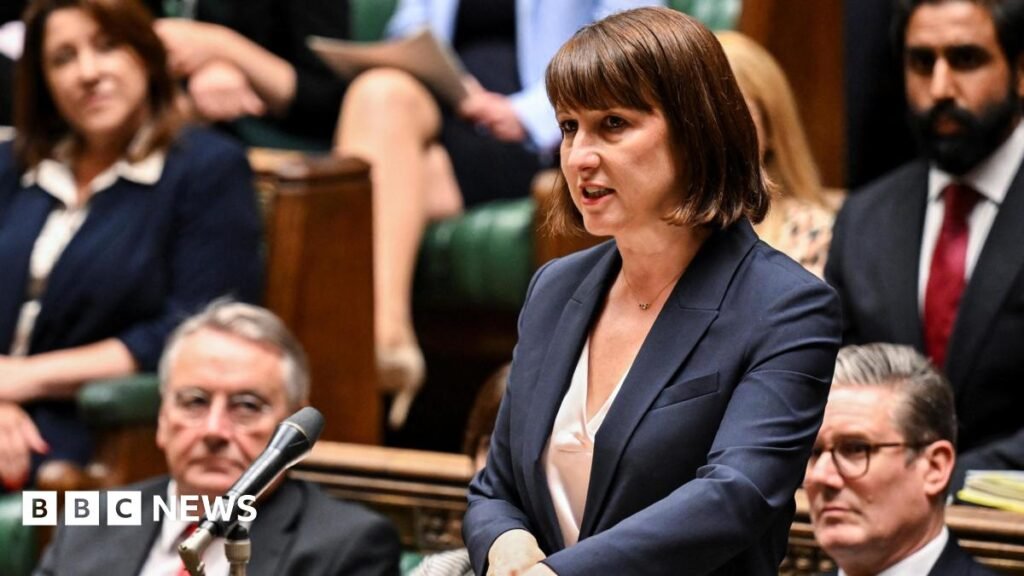Reeves has committed to one major economic event – the Budget – each year, to “give families and businesses stability and certainty on tax and spending changes”.
That means no big policy announcements are expected on 26 March, but that’s not stopping them being made beforehand.
With the economy seen to be underperforming and global factors, such as US trade tariffs, indirectly impacting the UK, there is growing speculation over whether the chancellor will break her self-imposed rules on borrowing.
The OBR’s forecast is expected to confirm that the £9.9bn financial buffer to meet her budget rule by the 2029-30 financial year has been wiped out.
Reeves has repeatedly said her rules are “non-negotiable”. Her two main rules are:
Ahead of the Spring Statement, the Treasury has drafted plans for several billion pounds of spending cuts.
It is understood welfare spending is in the firing line, but other government departments will also see budgets pruned.
The government already had concerns about the rising number of benefit claimants and Reeves has previously pledged “fundamental” reform of the welfare system.
The government is also seeking to reorganise the civil service to reduce bureaucracy. It has already announced that NHS England will be scrapped, and other quangos and regulators are also expected to be axed.
The Treasury has blamed global economic policy and geopolitical uncertainty over the outcome of conflicts in Ukraine and Middle East, for raising government borrowing costs.
Possible other announcements that are being reported include:
-
Reducing the £20,000 tax-free annual limit in cash ISAs, to encourage more people to invest their savings in stocks and shares
-
Confirming details of how international aid funding will be reallocated to defence, following the prime minister’s announcement that UK defence spending will rise to 2.5% of national income by 2027.
Government sources have been keen to state that this event is not a major one because it will not include tax rises, only spending cuts.
A debateable tax hiking policy could be announced, however, if Reeves decides to extend the freeze on the thresholds at which people start to pay different rates of income tax.
The policy is known as a hidden tax rise or stealth tax, as it takes effect over time as people are dragged into paying more tax as their pay goes up, without the tax rate rising at all.
Thresholds were frozen by the previous Conservative government until April 2028, but the chancellor could decide to extend the freeze beyond this to raise about £7bn a year, according to consultancy Pantheon Macroeconomics and investment bank Citi.
Reeves decided not to extend the threshold freeze in her first Budget, arguing that doing so “would hurt working people” and “take more money out of their payslips”.
Whether any other spending cuts are announced in the Spring Statement or in the Spending Review in June, or even delayed until the next Budget, remains to be seen.

